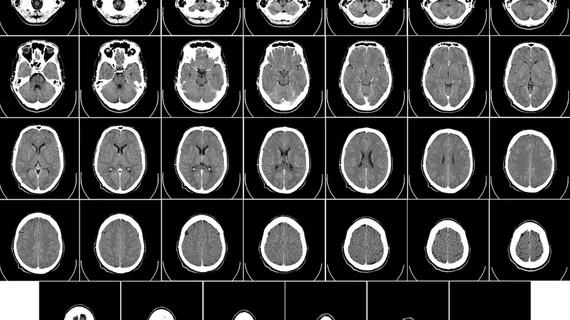Telehealth company wins FDA go-ahead on 2 neurodiagnostic AI applications
The FDA has cleared an investor-backed teleradiology provider to market two AI algorithms the company developed to flag certain stroke-associated findings in images from head CT scans.
The company, Silicon Valley based-Nines, says it will equip its own radiologists with the technology, called NinesAI, while also offering the tool for free to its client provider organizations.
The software automatically triages patients likely to have either of the two conditions—intracranial hemorrhage and mass effect—to the top of a worklist for a neuroradiologist to read asap, according to a news release.
Nines says it believes itself to be the first company to receive simultaneous FDA clearance on multiple indications.
The company doesn’t say how many radiologists it employs but notes that its staff also includes engineers and data scientists.
Its backers include the venture-capital firms Accel and 8VC.
In the news release, co-founder and CEO David Stavens says Nines leadership believes “the application of advanced technology can address complex and pressing challenges in healthcare,” including widespread burnout among radiologists.

